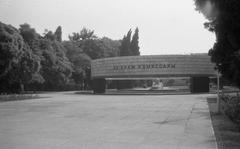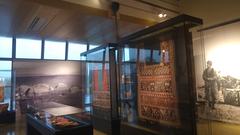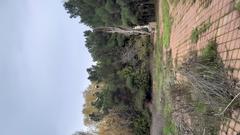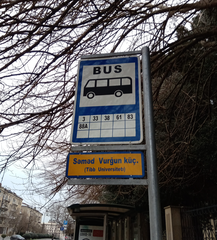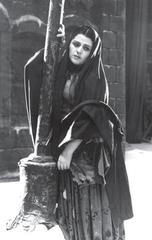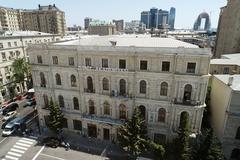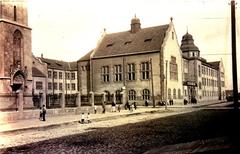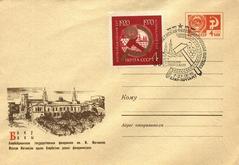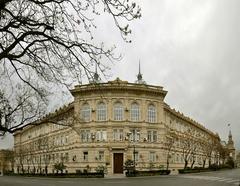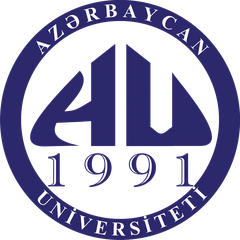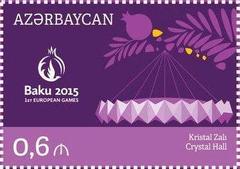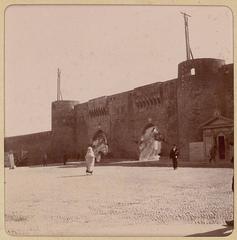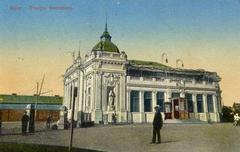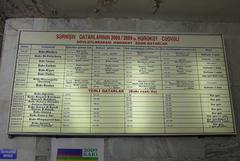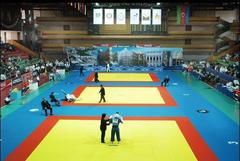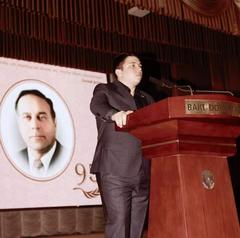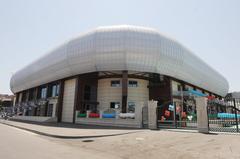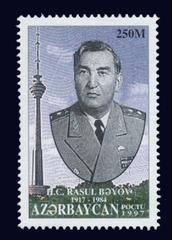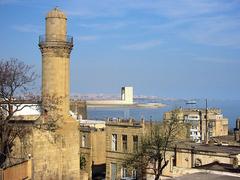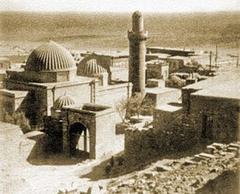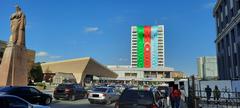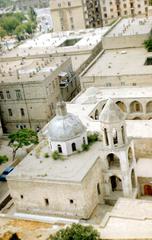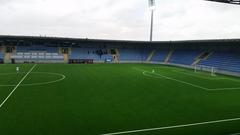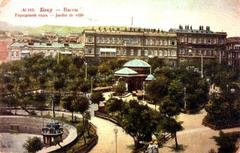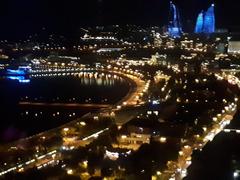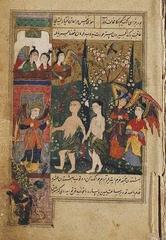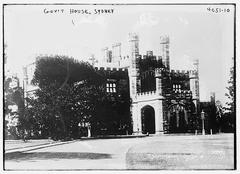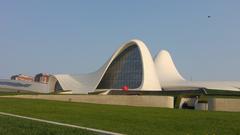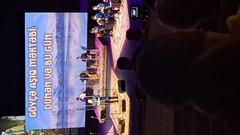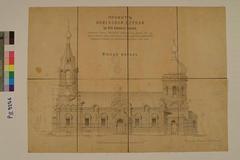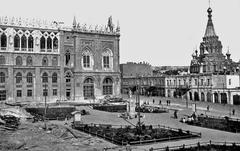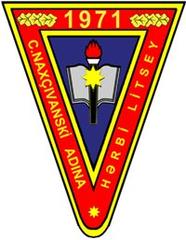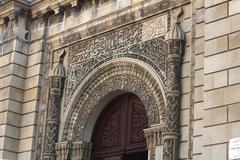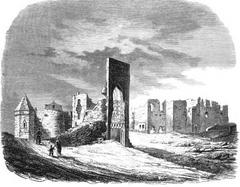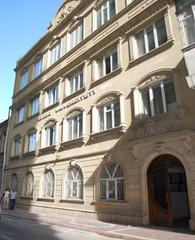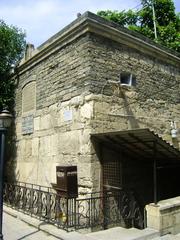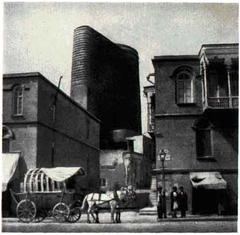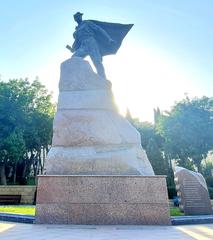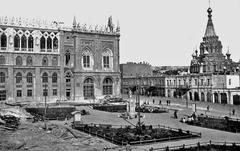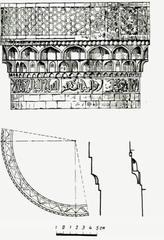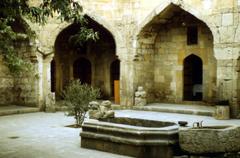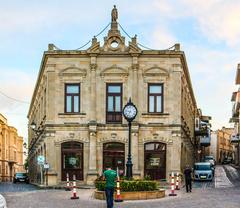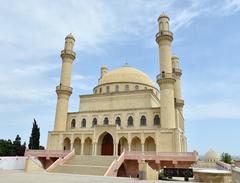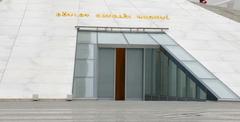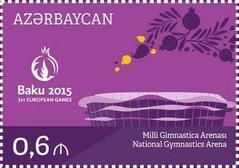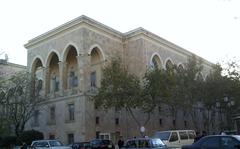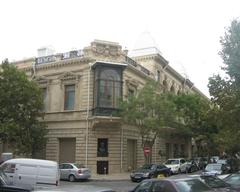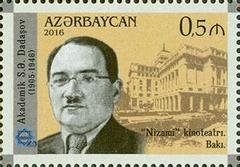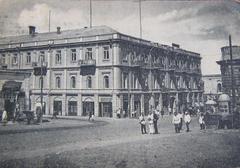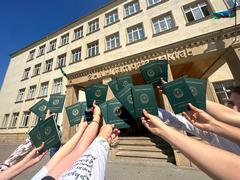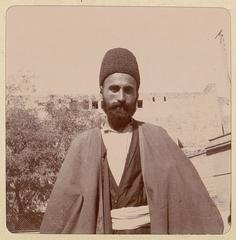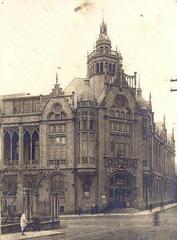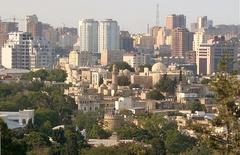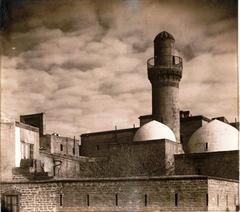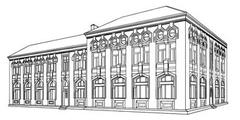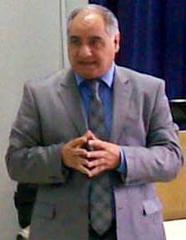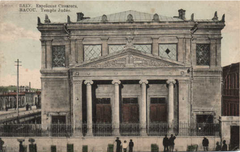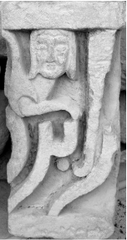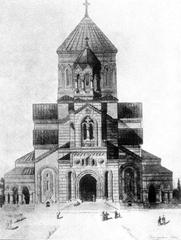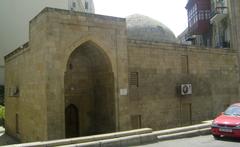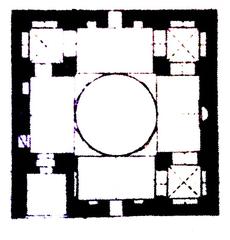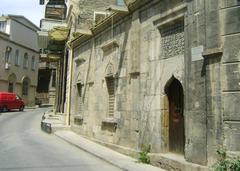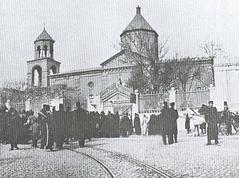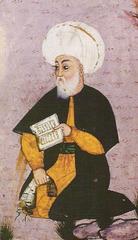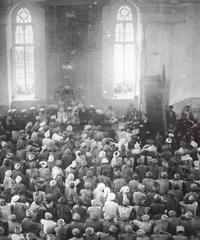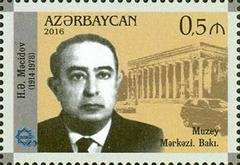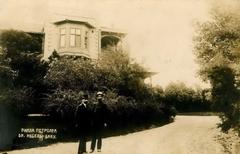Synagogue of the Ashkenazi Jews in Baku: Visiting Hours, Tickets, and Historical Significance
Date: 04/07/2025
Introduction
The Synagogue of the Ashkenazi Jews in Baku is a prominent symbol of Azerbaijan’s Jewish heritage and the broader multicultural character of the capital. Established on deep historical roots stretching back to the early 19th century, it has witnessed the evolution of Baku’s Jewish community—from the city’s oil boom and times of adversity during the Soviet era, to a vibrant post-Soviet revival. Today, the synagogue is not only a place of worship for Ashkenazi and Georgian Jews, but also a hub for interfaith dialogue, cultural events, and educational initiatives, reflecting Azerbaijan’s longstanding tradition of religious tolerance and coexistence (Synagogue of the Ashkenazi Jews Baku – History, Visitor Info & Cultural Insights; Visiting the Synagogue of Ashkenazi Jews in Baku: Hours, Tickets, and Historical Insights; Synagogue of the Ashkenazi Jews in Baku: History, Tours, and Tips).
This guide covers the synagogue’s history, architectural features, community role, visiting details, and practical tips, helping travelers appreciate its significance among Baku’s historical and Jewish heritage sites.
Table of Contents
- Early Jewish Settlement and Community Formation
- Growth of Jewish Institutions and Synagogues
- Ashkenazi Jewish Contributions to Baku
- The Soviet Era and Post-Soviet Renaissance
- Demographics and Language
- Synagogue Architecture and Community Life
- Visiting Hours, Tickets, and Visitor Information
- Nearby Attractions and Jewish Heritage Sites
- Frequently Asked Questions (FAQ)
- Conclusion and Further Resources
Early Jewish Settlement and Community Formation
Jewish presence in Azerbaijan dates back centuries, but the arrival of Ashkenazi Jews in Baku is traced to the early 19th century, specifically 1832 during the Russian imperial period (Wikipedia). This migration was part of broader patterns of Jewish movement within the Russian Empire, driven by economic opportunity and, later, by refuge-seeking during anti-Semitic pogroms. By the late 19th and early 20th centuries, Baku’s oil boom attracted Jewish populations from other Russian territories; by 1897, over 2,000 Jews—mostly Ashkenazi—lived in Baku. The community further grew with refugees fleeing pogroms in Kishinev, Odessa, and Bialystok (Multikulturalizm.gov.az).
Growth of Jewish Institutions and Synagogues
As the community expanded, so did its institutions. The first Jewish prayer house was built in 1832, evolving into a synagogue by 1896 (Wikipedia). The landmark choir synagogue, constructed in 1910, became a central gathering place. The present Synagogue of the Ashkenazi Jews—serving both Ashkenazi and Georgian communities—was inaugurated in 2003, designed by Alexander Karberin. As one of the largest synagogues in Europe, it stands as a testament to the endurance and renewal of Jewish life in Baku (Azerbaijan.travel).
Ashkenazi Jewish Contributions to Baku
From the late 19th century, the Ashkenazi Jewish community was integral to Baku’s professional and cultural life. Jews comprised about a third of registered lawyers and physicians by 1912, and notable figures such as Nobel laureate Lev Landau and Dr. Yevsey Gindes, Azerbaijan’s first Minister of Health, had roots in Baku’s Jewish community (Wikipedia; Azerbaijan.travel). Baku was also a center for Zionist activity, with the first Hovevei Zion group established in 1891 and a formal Zionist organization formed in 1899.
The Soviet Era and Post-Soviet Renaissance
The Soviet period was marked by religious suppression and the closure of synagogues; many Jewish institutions were repurposed or shuttered. Nevertheless, the Jewish community maintained cultural life through underground publications and reemerged in the late Soviet period with renewed organizations (Wikipedia). Post-independence, the opening of the new synagogue in 2003 marked a renaissance for Jewish religious and cultural life in Baku. Today, the city is home to three active synagogues and a Jewish school (Wikipedia).
Demographics and Language
While the Ashkenazi Jewish population peaked in the early 20th century, it declined significantly after the 1970s due to emigration. Today, the Ashkenazi community in Baku is estimated at around 500, with Russian as the primary language and Azerbaijani as a second language (Wikipedia). The Mountain Jews now constitute the largest Jewish subgroup in Azerbaijan.
Synagogue Architecture and Community Life
The Synagogue of the Ashkenazi Jews at 171 Dilara Aliyeva Street is a striking example of contemporary religious architecture, blending Jerusalem-inspired motifs with Azerbaijani elements. Its white-stone façade and spacious, light-filled prayer halls reflect both tradition and modernity. The synagogue accommodates both Ashkenazi and Georgian Jews, with separate prayer halls and facilities for cultural and educational activities (multikulturalizm.gov.az). Notable features include commemorative plaques acknowledging donors from multiple faiths, symbolizing Azerbaijan’s interfaith harmony.
Rabbi Shneor Segal leads the community, fostering outreach and interfaith dialogue. The synagogue also hosts community events, educational programs, and cultural celebrations, making it a focal point for Baku’s Jewish life (Azerbaijan.travel).
Visiting Hours, Tickets, and Visitor Information
Location: 171 Dilara Aliyeva Street, Baku
Visiting Hours:
- Monday to Friday: 10:00 AM – 5:00 PM
- Closed on Saturdays and Jewish holidays for religious services
Tickets:
Entry is free, though donations are appreciated to support community programs and maintenance.
Tours:
Guided tours are available by appointment and can be arranged through the synagogue’s official website or local tourism offices (ashkenazijews.az).
Visitor Guidelines:
- Dress modestly (long trousers for men; skirts/trousers covering the knees and tops with sleeves for women).
- Head coverings (kippot) are provided at the entrance for men; women may be asked to cover their heads during services.
- Photography is allowed in public areas but not during religious services or private events without permission.
- Wheelchair accessible; staff and volunteers can assist visitors with disabilities.
Facilities:
The synagogue offers community halls, classrooms, a library, and restrooms. English-speaking staff are available.
Nearby Attractions and Jewish Heritage Sites
While visiting the synagogue, consider exploring these nearby sites:
- Synagogue of the Mountain Jews
- Ohr Avner Jewish School
- Red Town in Quba (significant Jewish heritage site)
- National Museum of History of Azerbaijan
- Fountains Square and the Old City (Icherisheher), a UNESCO World Heritage Site
Walking tours and audio guides are available to help uncover Baku’s layered multicultural history (Azerbaijan.travel).
Frequently Asked Questions (FAQ)
Q: What are the synagogue’s visiting hours?
A: Monday to Friday, 10:00 AM – 5:00 PM; closed on Saturdays and Jewish holidays.
Q: Is there an entry fee?
A: No, but donations are welcome.
Q: Are guided tours offered?
A: Yes, by appointment via the synagogue or local tourism offices.
Q: Is the synagogue wheelchair accessible?
A: Yes, it has ramps and accessible facilities.
Q: Can I take photographs?
A: In public areas only; please ask permission during services.
Conclusion
The Synagogue of the Ashkenazi Jews in Baku is more than a religious building—it is a living monument to resilience, cultural richness, and harmonious coexistence. Its history encapsulates the story of Baku’s Jewish community, from early settlement through adversity and renewal. Today, visitors are welcomed into an inclusive space where faith, education, and interfaith understanding thrive.
Whether you are a history enthusiast, cultural explorer, or spiritual traveler, a visit to the Synagogue of the Ashkenazi Jews offers a meaningful perspective on Baku’s multicultural identity. For the latest information on visiting hours, events, and tours, consult the synagogue’s official website or local tourism resources.
Enhance your journey by exploring related heritage sites, and consider downloading the Audiala app for curated guides, interactive maps, and real-time updates on Baku’s historical attractions.
Further Reading and Resources
- Synagogue of the Ashkenazi Jews Baku – History, Visitor Info & Cultural Insights
- Visiting the Synagogue of Ashkenazi Jews in Baku: Hours, Tickets, and Historical Insights
- Synagogue of the Ashkenazi Jews in Baku: History, Tours, and Tips
- Wikipedia: Synagogue of the Ashkenazi Jews in Baku
- Visit Silk Road: European and Georgian Jews Synagogue
- Totally Jewish Travel: Kosher in Baku
- World Jewish Travel: The Synagogue of Ashkenazi Jews
- Aliyev Heritage: Jewish Community in Azerbaijan
- Trek Zone: Synagogue of the Ashkenazi Jews in Baku
